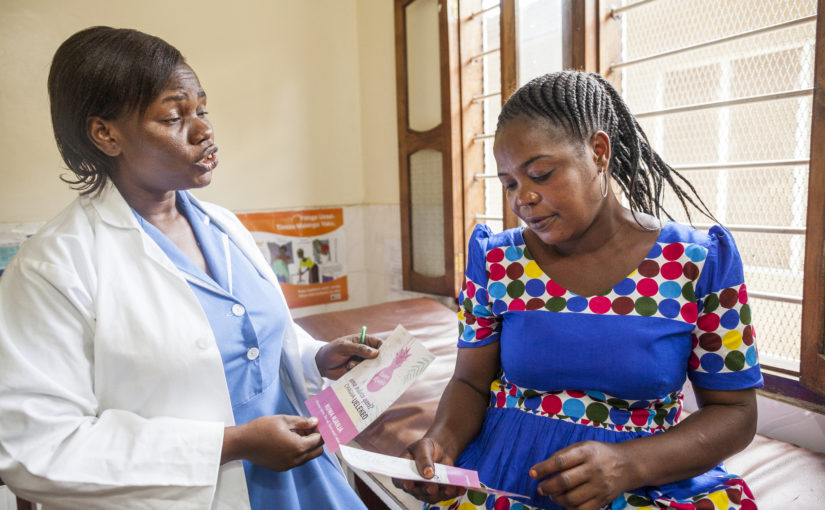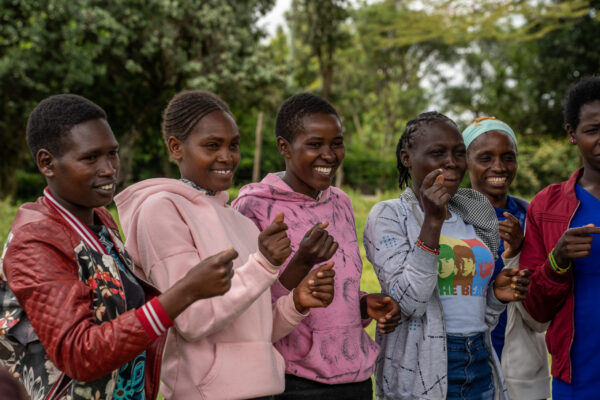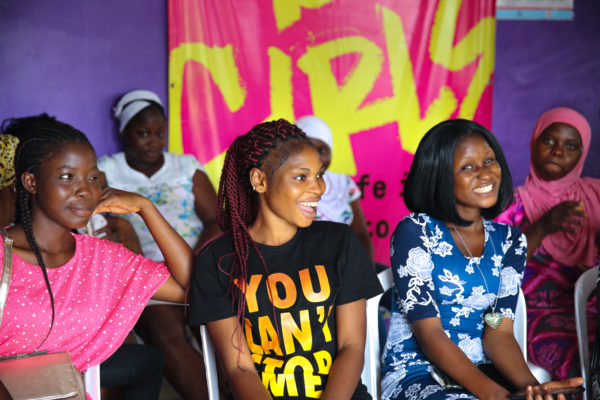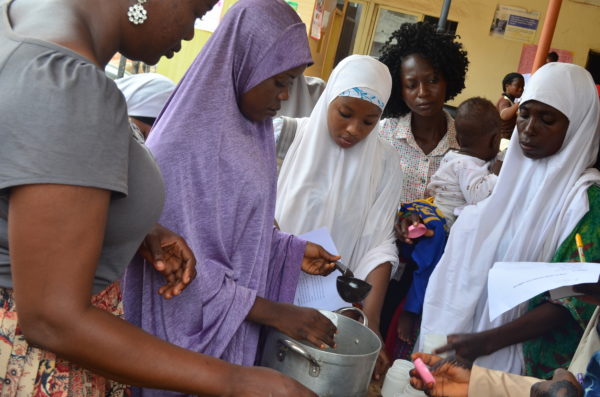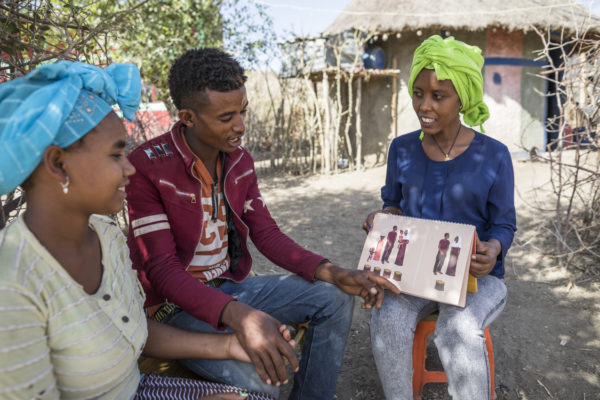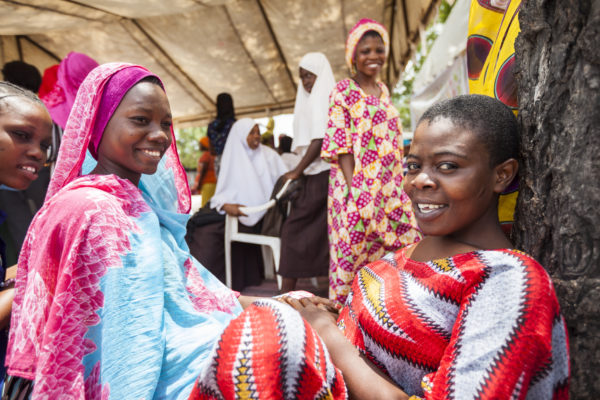Alice “has a problem” with her daughter.
Dressed in a blue bright blue and polka-dotted dress with her long hair in tight braids, she stands before the group of mothers gathered at the Safina Mission Health Facility in Dar es Salaam, Tanzania and warns them:
“As parents, we need to stay close to our children. Don’t give them to their grandparents and aunties to raise. You need to see what they’re doing every day.”
She knows from experience. Last year she and her husband were having trouble earning enough money to take care of their four children. She was doing well enough selling chapati, flatbread, on the stand she set up in front of her house in the mornings. But her husband, who sells clothes on the streets of Dar es Salaam wasn’t getting enough customers. So she sent 19-year-old Doreen to live with her aunt.
When her aunt found out Doreen was staying out all night with boyfriends, she sent her back home.
Alice told her daughter, “‘Concentrate on school. Study hard and you will have as many guys as you want when you are older.’”
Alice’s own mother had never talked with her about sex, and she found herself pregnant with her first child at 17. The teen pregnancy rate in Tanzania remains one of the highest in the world, at 19% (for comparison, the United States is at an all-time low of 2%). Teen pregnancy is the leading cause of death among girls 15-19 years old in sub-Saharan Africa.
Alice didn’t know the statistics. But she knew Doreen was at risk.
Alice tried to talk with her daughter about protecting herself against pregnancy, but Doreen brushed her off with a wave of the hand, saying, “Mama, do you think I am a child?”
She took her daughter to church with her where the minister reinforced the message of abstinence. But Alice isn’t naive.
“Whether you tell her it is a sin or not, she will do it anyway.”
So when Alice learned the health clinic five minutes away from her home was holding a session for mothers of adolescent girls, she was eager to learn more. The clinic outreach worker who gave her the invitation told Alice she would learn important information about how to prevent teen pregnancy.
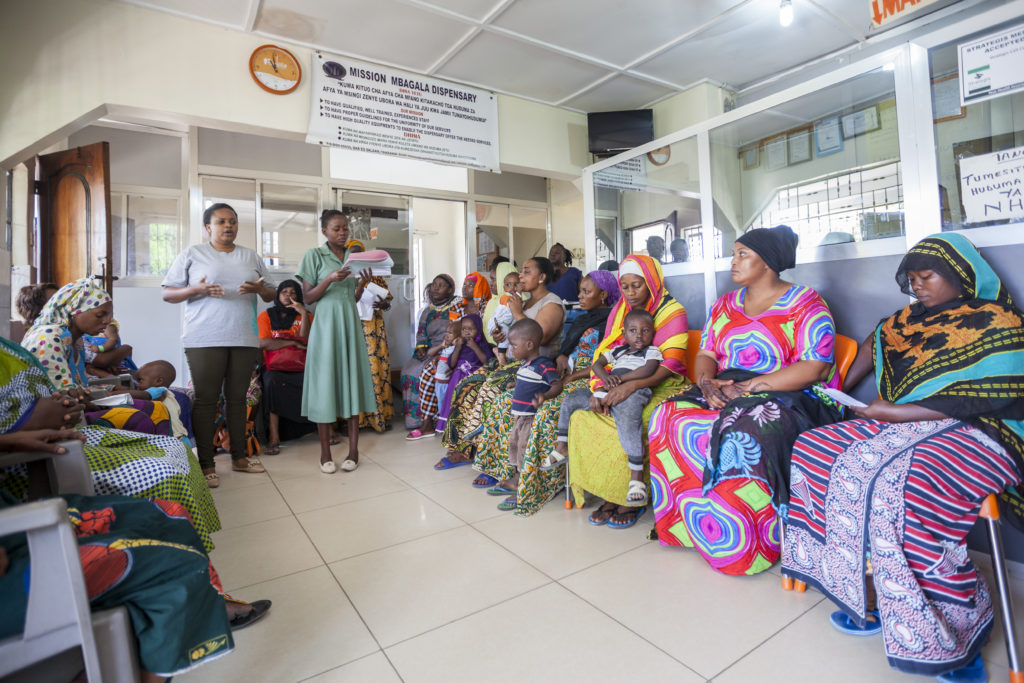
Maria, the clinic director, explained to Alice and the group of 26 mothers who were gathered exactly what she would be telling their daughters when they held a session for girls four days later. That Saturday, they’d be leading a program designed especially for girls, where they could learn about the changes going on in their bodies, how to prevent pregnancy, get their questions answered and talk with other girls.
Alice nodded enthusiastically throughout. She held up her hand without missing a beat when Maria asked who would be sending their daughters on Saturday to participate.
For all Alice knows, her daughter might be using contraception already. Perhaps that accounts for the dismissive wave when Alice tried to bring up the topic with her. But she says she is very happy to know that Doreen will be getting the right information when she comes to the girl’s Kuwa Mjanja session in a few days, a program developed and led by Adolescents 360, a PSI-powered and Bill & Melinda Gates Foundation and Children’s Investment Fund Foundation-funded adolescent and youth sexual and reproductive health project.
And if Doreen isn’t doing anything to protect herself…
“God willing” she will choose to take up a method when she comes, Alice says as clasps her hands together.
Adolescents 360 (A360) is a four-and-a-half year initiative co-funded by the Bill & Melinda Gates Foundation and the Children’s Investment Fund Foundation (CIFF). The project is led by Population Services International (PSI) together with IDEO.org, University of California at Berkeley Center on the Developing Adolescent, the Society for Family Health Nigeria, and Triggerise. The project is being delivered in Ethiopia, Nigeria and Tanzania, in partnership with local governments, local organizations, and local technology and marketing firms. In Tanzania, A360 is building on an investment and talent from philanthropist and design thinker Pam Scott.

